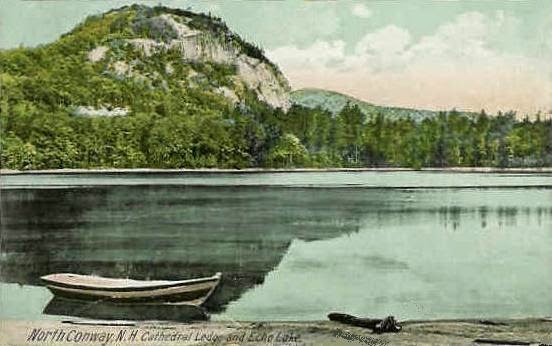 University of New Hampshire Media Relations: For more than 40 years, policy makers have been working to reduce acid rain, a serious environmental problem that can devastate lakes, streams, and forests and the plants and animals that live in these ecosystems. Now new research funded by the NH Agricultural Experiment Station (NHAES) at the University of New Hampshire College of Life Sciences and Agriculture indicates that lakes in New England and the Adirondack Mountains are recovering rapidly from the effects of acid rain.
University of New Hampshire Media Relations: For more than 40 years, policy makers have been working to reduce acid rain, a serious environmental problem that can devastate lakes, streams, and forests and the plants and animals that live in these ecosystems. Now new research funded by the NH Agricultural Experiment Station (NHAES) at the University of New Hampshire College of Life Sciences and Agriculture indicates that lakes in New England and the Adirondack Mountains are recovering rapidly from the effects of acid rain.Researchers found that sulfate concentration in rain and snow declined by more than 40 percent in the 2000s, and sulfate concentration in lakes declined at a greater rate from 2002 to 2010 than during the 1980s or 1990s. During the 2000s, nitrate concentration in rain and snow declined by more than 50 percent and nitrate concentration declined in lakes.
“This is really good news for New England. Lakes are accelerating in their recovery from the past effects of acid rain. Our data clearly demonstrate that cleaning up air pollution continues to have the desired effect of improving water quality for our region’s lakes,” said NHAES researcher William McDowell, professor of environmental science and director of the NH Water Resources Research Center.
In addition to McDowell, the research team included Kristin Strock, assistant professor at Dickinson College; Sarah Nelson, assistant research professor with the Senator George J. Mitchell Center and cooperating assistant research professor in Watershed Biogeochemistry in the UMaine School of Forest Resources; Jasmine Saros, associate director of the Climate Change Institute at UMaine and professor in UMaine’s School of Biology & Ecology; Jeffrey Kahl, then-director of environmental and energy strategies at James Sewall Company.
Researchers analyzed data collected since 1991 at 31 sites in Maine, New Hampshire, Vermont, Massachusetts, Rhode Island, and southern New York and 43 sites in the Adirondack Mountains of New York. The results are presented in “Decadal Trends Reveal Recent Acceleration in the Rate of Recovery from Acidification in the Northeastern U.S.” in the journal Environmental Science & Technology....
A 1914 postcard of Echo Lake in New Hampshire



No comments:
Post a Comment